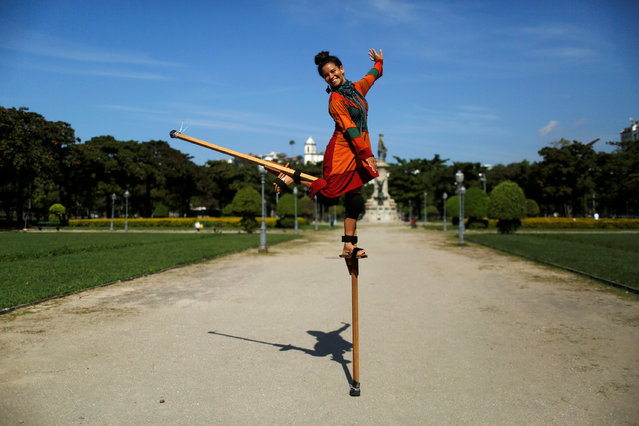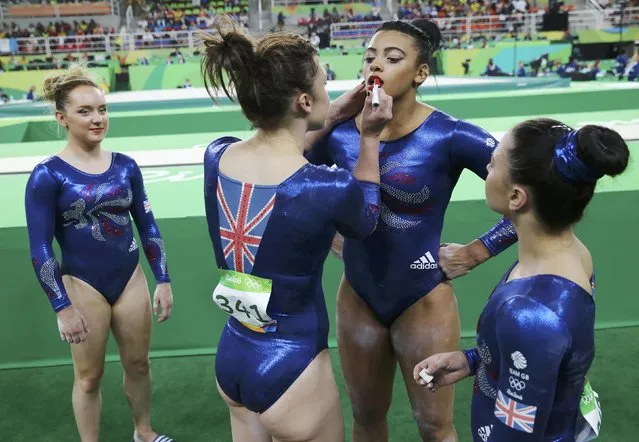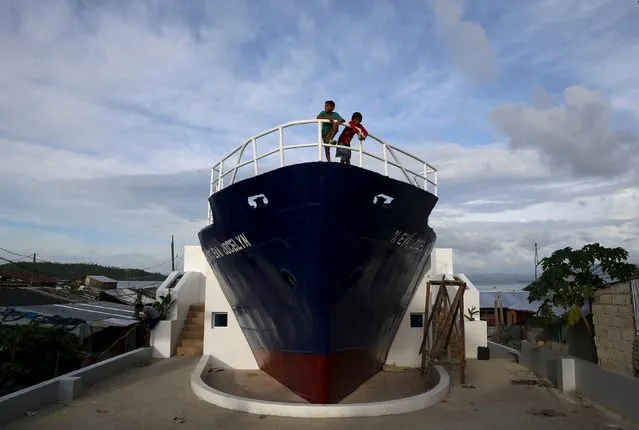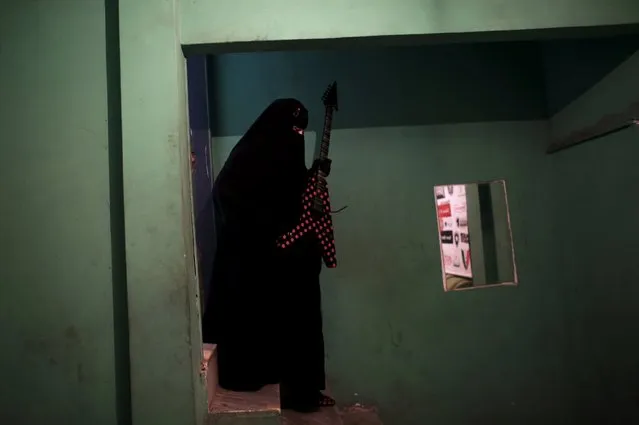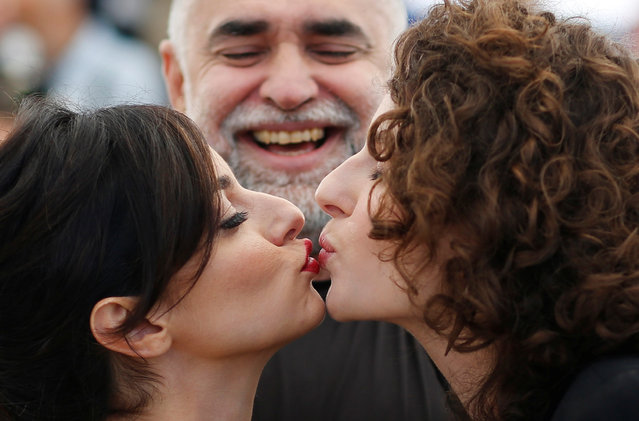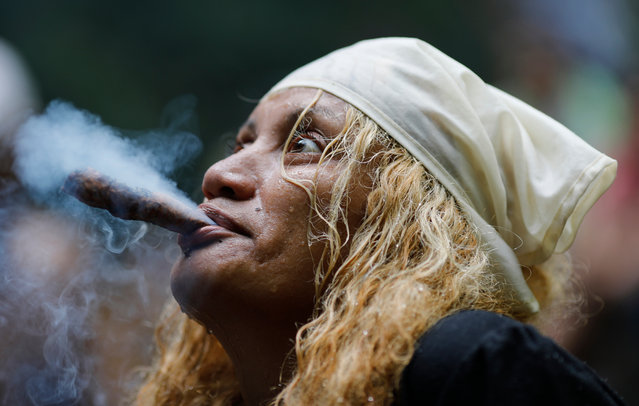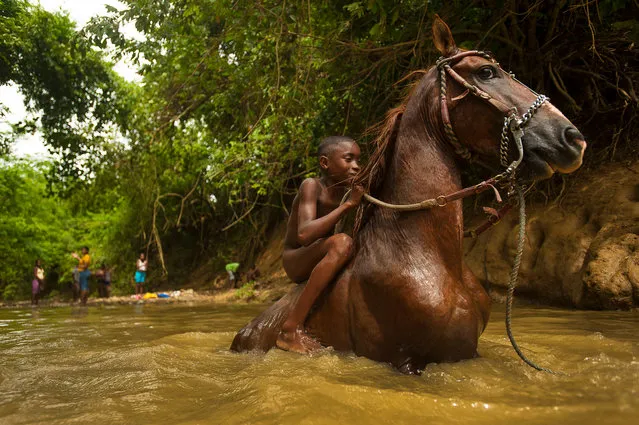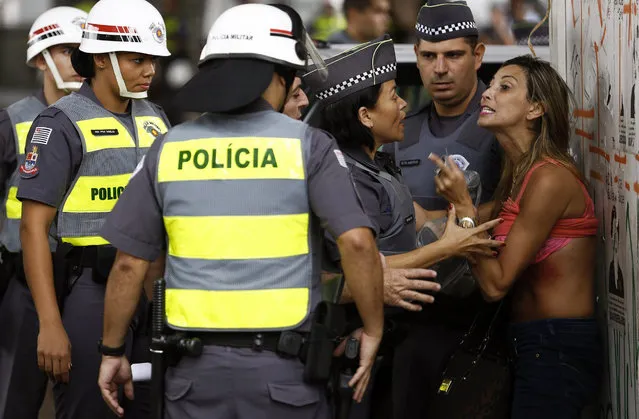
A demonstrator argues with policewomen after she turned up her shirt and was taken out from a protest to demand the resignation of Brazilian President Dilma Rousseff, on March 13, 2016 in Paulista Avenue in Sao Paulo. Protesters, many draped in the Brazilian national flag, poured into the streets of Brasilia and Rio de Janeiro on Sunday at the start of mass demonstrations seeking to bring down President Dilma Rousseff. Authorities in Sao Paulo, Brazil's biggest city and an opposition stronghold, said they were bracing for a million protesters. (Photo by Miguel Schincariol/AFP Photo)
15 Mar 2016 14:25:00,post received
0 comments

